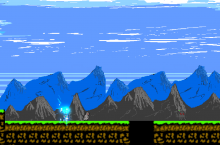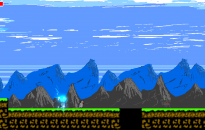Now its true you can cook sushi in a pan over the stove, but its so much more easier to cook it in a rice cooker trust me.
Looking to start your own indie game studio?
Do you have the ambition, but not the clarity or guidance?
My partner Stuart and I have run several businesses, some have succeeded, others haven’t. But then the consistent thread is that we tried. Are you ready to try?
What’s an indie game studio?
If you’re already into making games, then you may already have the ‘studio’. But that can either be in your garage or a team of people making them professionally. If you’re doing the latter, it suggests you’re doing it for profit and you have a multi-year, multi-games outlook.
Ready to begin
First the bad news: if you’ve never made a commercially-released game, then you aren’t ready to start an Indie Studio. You may well be in the games ‘zone’ with your mates, but if you are going to open a studio, then you could be about to make some very basic mistakes.
Here’s an 8-point reality check list to see if you’re ready to start a formal Indie Game Studio. If you answer yes to all, then you’re ready:
Have you made and commercially released a game? Even a small mobile game that you made on your own counts, so long as you actually launched it;
Do you have tangible game-making skills, such as design, programming or art? If not, don’t try opening a game studio if you don’t have something you can contribute to actually making the game;
Do you have a clear vision of the first game you will make? Researched the concept, designed the core features and received feedback from your target audience?
Do you have enough money (or a day job) to last at least 6 months with no income from your game studio?
And enough money to pay contractors/employees to create the aspects of the game that you yourself don’t have the skills to create?
Do you have a fleshed out business plan? It doesn’t need to be huge, just something tangible.
Are you willing to spend 25-50% of your time on marketing and community development or on App Engine Optimization, or do you have a founding partner who will do it?
Are you ready to fail, and willing to work every day for months without giving up?
Really need to start a studio?
Probably not!! My advice is just crack on with making the game – not business cards, a logo, an official business entry or even investment. Be sure to give yourself a ‘studio’ name so you know what to put in the required fields when you submit your game to the App Store or similar. Only formalise your studio when one of these is about to happen:
You’re about to make lots of money;
About to receive significant investment money, or
You need to get professional to attract partners or investors if they have hot leads, or are willing to find them. So focus on finishing the game and worry about the other stuff later on.
How to create an Indie Game Studio
If you’re all set, then here are some steps to move forward:
Pick a ‘studio’ name: Google around to check you have a unique name, grab an URL website that matches it and register the company with your local government office.
Business plan: Write a clear plan that focuses on answering these key questions:
What are we going to make? Who is going to make it? How are we going to make it? How much money do we need and what will we spend it on? How much money do we expect to make and when will we make it? How will we sell, market and promote our game? If seeking investment, what do our investors get in return for their money?
Het your Prioritise right: That means there’s no need to get business cards, logo, corporate website, until you absolutely have to. If you’re working at a physical location, find office space where your team can work. Ideally a coworking space. Pay as little as you can and try to plan for 50% expansion. Buy the equipment you need today, even looking to get everything second hand will do the job. Alternatively, if you’re working remotely, audit what software your team has and buy as little new stuff as possible.
Project management: Big words, but it simply means getting a written agreement or a Memorandum of Understanding with your team members on who does what, who owns what and who can and can’t make decisions. Do this without a lawyer until investment is involved. Get yourself some project management tools such as Pivotal Tracker, and outline a clear set of management processes. Outline roles and responsibilities, and while all this is going on, get building your game.
There may well be other issues to deal with – build a team, deal with finances, manage a crowdfunding or a kickstart campaign – but, as a creative coach for Game Creators, I highly recommend you surround yourself with experienced coaches, mentors and partners who can help you avoid the pitfalls of starting a studio.
Final thoughts
It will be a tough journey, but make your game and use it as practice. Don’t expect to make big money, but get clear feedback from industry game veterans or indie developers who will tell you the truth.
It will always take longer than you think, so plan for the worst case scenario and then double your estimates. Trust me. It’s true. BUT!… Don’t give up. If you work hard, keep learning, get involve with your community and you will be in the right path to success.
Want to learn more?
- Just starting out? CLICK HERE
- Been working in your business for two years or more? CLICK HERE
- Launch Pad + Accelerator Expressions of Interest
- Submit your article – Share news, press release. SUBMIT HERE
We’re here to help you to take action just like we’ve helped thousands of other entrepreneurs, business owers and creative professionals all around the globe.
Now is the time to let your passion SHINE.
Now is the time to Make Tomorrow Today!
To your success,
Vinh Van Lam & Stuart Horrex
GameSHINE & ArtSHINE industries













